Editorial
Science Week, Dassault Systèmes' largest science and technology event, gathers renowned scientists, forward-thinking industry influencers and thought leaders from companies, universities and public institutions around the world with the objective to reveal and demonstrate how new deep science and applied technologies shape tomorrow.
In the Age of the Generative Economy, where the Age of Experiences and sustainability imperatives converge, we believe more than ever that the best way to build a better future for all is through Science. With Scientific UNIV+RSES, we turn knowledge into impact, reshaping the world through innovation. Convinced that virtual worlds can improve science practices and outcomes in many strategic domains, such as engineering, material science, medicine, biology, data science or natural sciences, Dassault Systèmes intends to catalyze how sciences open our eyes and make the invisible visible. Virtual worlds allow us to explore, understand, imagine, create, test and elevate our understanding and means to act to resolve our most significant challenges in the real world.
Science in the Age of Experience: October 29-30
Science in the Age of Experience will underline how a new V+R scientific method with “virtual twin of everything for everyone” proposes a new category of modeling, simulation, real‑world data and AI-generated content combination and truly new kind of scientific virtual + real (V+R) experiences. Science and innovation are part of our DNA.
Scientific UNIV+RSES embody a new elevation of representations of the world revolving around knowledge, where stakeholders around a domain challenge the status quo and around know‑how to apply, impact and metamorphose our society.
11th Virtual Human Twin Experience Symposium: October 30-31
The 11th Virtual Human Twin Experience Symposium will convene the largest, sustained global community of technical and thought leaders from academia, industry, and government to share their experiences, data and vision toward the creation of virtual twins of the human body. Building on the foundational success of the Living Heart Project, this year’s symposium will explore the acceleration of the field, driven by the convergence of AI, multiscale modeling, and patient-specific data to develop smarter, safer, and more personalized therapies. The Symposium addresses the human element of the Science in the Age of Experience, showcasing how virtual twins can break down silos in medicine, alter the cost structure, power generative scientific innovations, and ultimately improve outcomes for all patients.
Science in the Age of Experience - Science Univ+rses
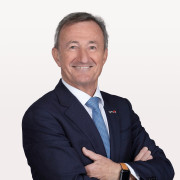
Bernard Charlès

Bernard Charlès
Bernard Charlès has been Executive Chairman of the Board of Directors of Dassault Systèmes, since January 2024. He served as the Company’s Chief Executive Officer from 1995 to 2022, and was Chairman & CEO in 2023. Today, the Company, world leader in virtual universes, is a global top ten
software company.
Bernard Charlès has positioned Dassault Systèmes, world leader in virtual universes, as the preferred partner for innovation. The inspiration behind digital mockup, product lifecycle management and 3DEXPERIENCE®, Charlès firmly believes that virtual technology is about connecting imagination and science: 3DEXPERIENCE universes are the most powerful vehicle for testing concepts and creating the future, bringing dream and reality together, and stretching the limits of science and imagination to drive progress in society.
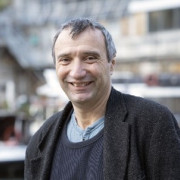
Olivier Adam

Olivier Adam
Professor at Sorbonne University, Paris, France. Olivier Adam is expert in bioacoustics. He studies the sounds emitted by cetaceans to describe their populations and their societies. He is currently working on 3 scientific projects: studies of mother-calf relationships in humpback whales, analysis of social interactions in sperm whales, and description of underwater soundscapes.
His new book, "Dans la tête d'une baleine," published by Humensciences, is now available for sale. He is also the author of more than 75 articles published in scientific journals. He is the co-organizer of various international conferences, including the DCLDE and the World Humpback Whale Congress. He also attaches great importance to scientific mediation, in newspapers, television, radio and exhibitions, such as Symphonie en Profondeurs in Nice. Olivier Adam was also the regional ambassador for the Fête de la Science 2024.
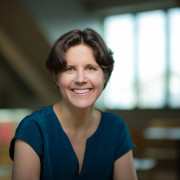
Joëlle Barral

Joëlle Barral
Joëlle Barral is a Senior Director of Research & Engineering at Google DeepMind (GDM). Based in Paris, she has a diverse portfolio of foundational research efforts, which includes theoretical and empirical aspects of frontier models as well as early-stage research in artificial intelligence and the life sciences. She is also in charge of GDM's efforts in healthcare. She leads a team of researchers and engineers spread across Europe and North America.
Joëlle Barral was previously software lead at Verily, Google's sister life sciences company, and the head of Verily Surgical. She joined Verily in 2014 and was part of the team who started Verb Surgical, Verily’s joint venture with Johnson & Johnson’s Ethicon, pioneering a vision for the future of robotic surgery that leverages machine learning and digital tools to enhance the surgeon’s judgment, improve decision making, and positively impact clinical outcomes.
Before joining Verily, she was with HeartVista, a spin-off from Stanford University, where she developed an MR software package for the comprehensive evaluation of ischemic and valvular heart diseases. Joëlle Barral has authored numerous patents on topics ranging from maternal health, digital pathology, surgical robotics, and medical imaging.
She holds a B.S. degree in Math and Physics from Ecole Polytechnique, France, and M.S. and Ph.D. degrees in Electrical Engineering, in the field of high-resolution Magnetic Resonance Imaging, from Stanford University, where she was also a Simon Stertzer Biodesign Innovation Fellow. She is the 2019 recipient of the Pierre Faurre Prize.
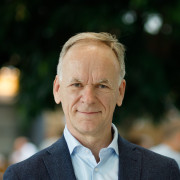
Jos Benschop

Jos Benschop
Dr. Jos Benschop received his M.Sc. (cum laude) and PhD in physics from University of Twente.
From 1984 until 1997 he worked at Philips Research Labs in Eindhoven as well as Sunnyvale (CA-USA).
He joined ASML in 1997 where he initiated and lead the program to assess and select the “Next Generation Lithography” which resulted in the choice for Extreme UltraViolet Lithography (EUVL) by ASML.
Today EUVL is being used in High Volume IC Manufacturing by all leading memory and logic makers.
Dr. Benschop is a member of ASML executive team. As Executive Vice President Technology he is currently responsible for Research, System Engineering, Corporate Intellectual Property and the Technology Development Center.
Dr. Benschop published over 42 papers and is (co-)inventor of more than 24 patents.
He is a member of the Netherlands Academy of Engineering (NAE), a fellow of the SPIE and has been appointed by the King of The Netherlands as advisor to Dutch government and parliament for Science, Technology and Innovation (AWTI).
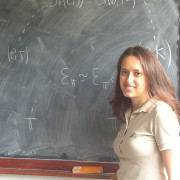
Olivia Caramello

Olivia Caramello
She is a mathematician working as Associate Professor at the University of Insubria in Como. She is also affiliated to the Université Paris-Saclay. Since March 2022, she has been the President of the Grothendieck Institute, an Italian foundation devoted to interdisciplinary research in the mathematical sciences.
Since the beginning of her Ph.D. studies, her research has focused on investigating the role of Grothendieck toposes as unifying spaces in Mathematics and Logic.
Her main contribution has been the development of the unifying theory of topos-theoretic 'bridges', consisting in methods and techniques for transferring information between distinct mathematical theories by using toposes.
These methodologies are interdisciplinary in character and, even though they find their theoretical and most natural expression in Mathematics, they can also be applied outside it, in subjects such as Physics, Computer Science, Linguistics and Philosophy.
The Centre for Topos Theory and its Applications of the Grothendieck Institute is notably devoted to developing the theory of toposes as 'bridges' and its applications.
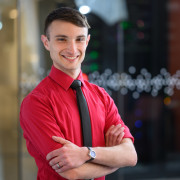
Alex Creely

Alex Creely
Alex Creely is a scientist and engineer on a quest for clean energy.He is currently the Director of Tokamak Operations and Chief Engineer of ARC Design at Commonwealth Fusion Systems, a Massachusetts-based company working toward clean fusion energy. Alex has been at CFS since 2019 after starting as lucky number 13 at the company.Alex has worked on fusion projects around the world and is optimistic about a future in which the world runs on clean energy. Alex completed a Bachelors in Mechanical Engineering at Princeton University in 2014 and a PhD in 2019 at MIT, building fancy thermometers to measure plasma turbulence.
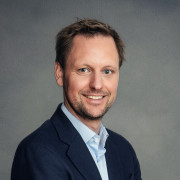
Jan Goetz

Jan Goetz
Dr. Goetz is a quantum physicist, Co-CEO, and Co-founder of IQM Quantum Computers. Dr. Goetz did his doctorate on superconducting quantum circuits at TU Munich and worked as a Marie-Curie Fellow in Helsinki at Aalto University, where he holds the title of docent. In 2024, WirtschaftsWoche Magazin selected him as one of 30 executives to shape Germany, in 2023, he was selected as Founder of the Year by Handelsblatt. In 2020, Capital magazine selected him as one of 40 under 40 in Germany, and he received an entrepreneurship award from the KAUTE Foundation.
Jan was on the Board of the European Innovation Council EIC, and holds a Board seat in the European Quantum Industry Consortium QuIC. He is also and member of the German Federal Economic Senate, an EIC Scaling Club Council member, member of the Hall of Future, as well as a Digital Leader and Global Innovator at the WEF.
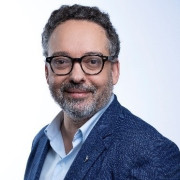
Patrick Johnson

Patrick Johnson
Patrick Johnson is EVP Corporate Research & Sciences at Dassault Systèmes, with the mission to define the scientific bases of the company’s solutions and invent new disruptive technologies for the Industry Renaissance.
He held various positions in R&D, from virtual product design for the CATIA brand to head of the AI organization where he played an instrumental role with new engineering practices now adopted in multiple sectors, such as knowledge & and industrial know-how automation.
Head of Corporate Research since 2004, he has initiated new original technologies, fostered many public/private partnerships and launched strategic diversifications with large research programs in modeling, simulation, big data and clinical trials resulting in the first end-to-end scientific and business platform for Lifesciences.
A graduate of ISAE, he is or has been a member of the French National Academy of Technology as well as of the scientific boards of INRIA, IMT, ARISS, International Society of Computational Biology, IRCAM, Comité de Culture Mathematics of the Institut Henri Poincaré, and Associate Personality of the Economic, Social and Environmental Council (CESE).
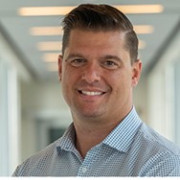
Antonios Kontsos

Antonios Kontsos
Dr. Antonios Kontsos is the first Henry M. Rowan Foundation Professor in Rowan University’s Mechanical Engineering Department and Henry M. Rowan College of Engineering, where he is also the inaugural Director of the Digital Engineering Hub (DEHub). Prof. Kontsos’ research interests are in the area of digital engineering with emphasis on connecting the physical and digital domains via data streams and digital twins. To achieve this goal, his research relies on using methods that involve theory, experiments, modeling, manufacturing, and simulations. Dr. Kontsos has been using multiphysics sensing and multiscale testing methods across time and length scales, in conjunction with digital signal processing, numerical simulations, artificial intelligence methods, and internet of things (IoT) type architectures to design and produce materials, as well as to evaluate and predict their behavior. In relation to these research efforts, Prof. Kontsos teaches topics related to solid mechanics, advanced manufacturing, and cyberphysical systems.
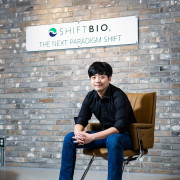
Gihoon Nam

Gihoon Nam
Dr. Gihoon Nam, MD, PhD, is a distinguished physician-scientist and corporate leader. After earning his degrees from Korea University, he completed extensive postdoctoral training in drug development at KIST, Harvard Medical School, and the Dana-Farber Cancer Institute. In 2020, he cofounded and became CEO of SHIFTBIO. As CEO, he leads the company in pioneering next-generation
drug delivery platforms, using AI-driven design to accelerate pharmaceutical development under the vision “Make innovation accessible.”
Concurrent with his industry leadership, Dr. Nam is an Assistant Professor at Korea University College of Medicine. A recognized expert in nanomaterial drug delivery, his work has led to numerous publications in leading international journals, enabling new approaches to address previously untreatable diseases.
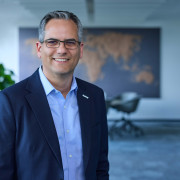
Patrick Nebout

Patrick Nebout
Patrick Nebout is the Chief Technology Officer at Yanfeng Technology, a position he has held since July 2023. In this role, he leads the company’s global Smart Cabin initiatives, overseeing product strategy, consumer research, industrial design, and the full lifecycle of innovation development—from initial concept to market launch. Patrick is focused on driving Yanfeng’s global Smart Cabin strategy, with a strong emphasis on sustainable innovation and long-term business growth.
With over 25 years of experience in the automotive industry, Patrick brings deep expertise in advanced technologies and cockpit systems. Prior to joining Yanfeng, he served as Chief Technology Director at Forvia from 2017, where he led the Cockpit of the Future program. There, he was instrumental in launching cutting-edge systems and technologies, managing cockpit systems development, and advancing the use of product digital twins and data-driven engineering models.
Earlier in his career, Patrick held leadership roles in advanced technologies and innovation at Visteon, following its acquisition of Johnson Controls Electronics. At Johnson Controls, he served as Director of the Driver Information Product Business Unit, where he was responsible for global product management, platform development, and commercialization of new solutions.
Patrick began his career in the aerospace industry with Aerospatiale, working in both Canada and France, and later held management roles in Sales and Marketing at Robert Bosch, focusing on automotive safety products.
He holds a Master of Sciences in Physics from Ecole Centrale Méditerranée and a Master’s in Business from HEC Paris.

Sukanya Punthambaker

Sukanya Punthambaker
Sukanya Punthambaker stands as a visionary leader in the fields of synthetic biology and environmental sustainability. As the Co-Founder and CEO of Breaking Inc., a Harvard University spinout, and gestated at Colossal Biosciences, she is leading the charge in revolutionizing plastic degradation through innovative synthetic biology. With over two decades of experience in life sciences research and biotechnology, she is not only pioneering groundbreaking solutions but also shaping the future of global sustainability.Her journey is deeply rooted in scientific excellence. Before launching Breaking Inc., she collaborated extensively with the renowned scientist Dr. George Church at Harvard Medical School and the Wyss Institute, where she contributed to cutting-edge advancements in synthetic biology, sequencing, and protein engineering. Her academic journey is equally distinguished—she earned a Ph.D. in Molecular Biology from the University of Michigan, Ann Arbor, and holds a Master’s in Biotechnology and a Bachelor’s in Microbiology, both from India.
Dr. Punthambaker’s contributions have been recognized through several prestigious accolades, including the Department of Biotechnology - Junior Research Fellowship in India, the Outstanding Graduate Student Instructor Award, and the Okkelberg Award, which is given to an exceptional senior graduate student at the University of Michigan. In addition to these achievements, she has co-authored several influential publications in reputable peer-reviewed journals, further cementing her authority in the field.
Plastic pollution is one of the most pressing environmental challenges of our time, and under her dynamic leadership, Breaking Inc. is well-positioned to address this issue at a fundamental level. With a mission to drive sustainability through innovation, she envisions a world where plastic waste is no longer an environmental burden but a resource for regeneration. Through next-generation solutions and AI-driven technologies, she is committed to accelerating plastic breakdown efficiently and safely. Her work is a testament to the power of science and entrepreneurship in creating a lasting impact on the planet.
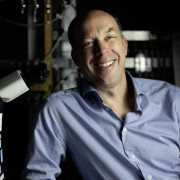
Stephen Quake

Stephen Quake
Stephen Quake is the Lee Otterson Professor of Bioengineering and Professor of Applied Physics at Stanford University. He received a B.S. in Physics and M.S. in Mathematics from Stanford University in 1991 and a doctorate in Theoretical Physics from the University of Oxford as a Marshall Scholar in 1994. He began his faculty career at the California Institute of Technology in 1996, where he rose through the ranks to become the Everhart Professor of Applied Physics and Physics. He joined Stanford in 2005 to help found and lead Stanford’s new Bioengineering department as it grew to nearly two dozen faculty members. He was an Investigator of the Howard Hughes Medical Institute from 2006-2016, after which he became the founding co-President of the Chan Zuckerberg Biohub which he led from 2016-2021. At the CZ Biohub Quake led the creation of the first whole organism cell atlases – of mouse, fly, lemur and human. From 2022-2025 he was the head of Science at CZI, where was responsible for an annual budget of more than $450 million and where he led the creation of Biohub institutes in New York and Chicago as well as CZI’s pivot towards AI in biology.
Quake’s research has explored the nexus of biology, physics and technology development. His research in microfluidic device physics led to the invention of the biological integrated circuit – chips with tens of thousands of microfabricated valves and other assorted plumbing elements. Quake developed applications of these devices in areas in fields as diverse as structural biology, biochemistry, genetics and cell biology. Many of the technologies currently used for single cell genomics trace their origin to Quake’s discoveries in this field. Quake’s early career work in single molecule biophysics led him to the invention of the first single molecule sequencing technology, which he used for an early example of human genome sequencing. He then began exploring other applications of genomics, which led him into immune repertoire analysis, diagnostics and the development of non-invasive tests for fetal aneuploidy and organ transplant rejection.
Quake’s contributions to the development of new biotechnology at the interface between physics and biology have been widely recognized. Honors include the Prize for Convergence Research (National Academy of Science), The Max Delbruck Prize in Biological Physics (American Physical Society), the Gabbay Prize for Biotechnology and Medicine, the Human Frontiers of Science Program Nakasone Prize, the MIT-Lemelson Prize for Inventors, the Raymond and Beverly Sackler International Prize in Biophysics, the American Society of Microbiology’s Promega Biotechnology Award, and the Royal Society of Chemistry Publishing’s Pioneer of Miniaturization Award. He is an elected member of the National Academy of Sciences, the National Academy of Engineering, the National Academy of Medicine, the American Academy of Arts and Sciences, the National Academy of Inventors, the American Institute for Medical and Biological Engineering, the American Physical Society and the Royal Society. He has published more than 300 peer reviewed papers which have cumulatively been cited more than 140,000 times, and his h-index is 181. He is one of the most prolific inventors in the world and is named inventor on 179 US patents, as well as many more international patents.
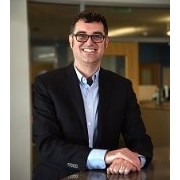
Chris Ritter

Chris Ritter
Chris Ritter is the Division Director of Scientific Computing & AI and the Director of the Digital Innovation Center of Excellence at Idaho National Laboratory (INL). Leading a team of approximately 100 computational and data scientists, Chris is revolutionizing the future with AI/ML, digital twinning, digital engineering, multi-physics, HPC, and digital thread technologies across a range of applications, including nuclear energy, non-proliferation, semiconductors, and defense.
Chris founded INL's nationally leading digital engineering team, which has grown to over 57 of the nation’s top researchers and developers in digital science. His team's achievements include creating the first nuclear reactor digital twin, developing the Deep Lynx open digital thread platform, and building the first autonomous non-nuclear microreactor. Additionally, Chris serves as the Chief Digital Officer of SMART USA, a $1B institute focused on semiconductor digital twins. Prior to INL, Chris co-founded and led the development of Innoslate, the #1 cloud-native MBSE tool used in 107 countries by over 2,000 companies worldwide.
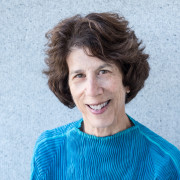
Barbara Tversky

Barbara Tversky
Barbara Tversky is a cognitive scientist, Professor Emerita at Stanford University and Columbia Teachers College. She has served as President of the Association for Psychological Science and on boards of many organizations and journals. She was elected to the American Academy of Arts and Sciences, is a Fellow in many organizations, and the recipient of the Kampe de Feriat Award, In her long research career, she has worked on memory, categorization and other knowledge structures, spatial memory, language, and thinking, event perception and cognition, diagrammatic reasoning, visualizations, comics, design, gestures, collaboration, and creativity. En route, she has enjoyed collaborations with psychologists, linguists, neuroscientists, biologists, chemists, data scientists, computer scientists, artists, and designers. Much of her work is recounted in her book, Mind in Motion: How Action Shapes Thought. Early on, she questioned the idea that thinking is language-like having noticed that people readily recognize faces, places, music, and the like, and that those important parts of human experience can’t be reduced to propositions. Moreover, space takes up around half the cortex, more than language, and evolved long before it, that acting in space is crucial to existence, that parts of the brain that represent things in space and the spatial relations among them also represent events in temporal relations, people in spatial relations, and concepts in conceptual relations. This led to investigating how we think about the spaces we act in, the space of the body, the space around the body in reach of hand or eye, and the much larger spaces that we assemble from many different forms of experience. From there, she proceeded to the ways we use space to think, communicate, collaborate, and create, including the gestures and actions we make with our bodies and the things we create in space, drawings, sketches, diagrams, equations, models, and more to augment our own minds and those of others.
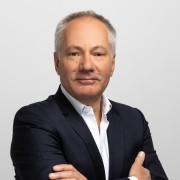
Quentin Sannié

Quentin Sannié
Quentin Sannié is an entrepreneur and innovator dedicated to tackling today’s most pressing environmental challenges. He is the Co-Founder and President of Genesis, the world’s first soil health rating agency, which combines soil science, AI, and digital platforms to create a universal benchmark for soil, carbon, water, and biodiversity. Under his leadership, Genesis has built the largest global database of soil analyses and a methodology enabling the “digital twin of soil” — a breakthrough tool for companies and financial institutions to measure, model, and improve the resilience of their supply chains.
Previously, Quentin co-founded Devialet, the award-winning French audio technology company, recognized worldwide for its design and acoustic innovations. With nearly 40 years of entrepreneurial experience, he now focuses his energy on bridging science, technology, and business to accelerate the regeneration of ecosystems and to equip industries with the tools they need for a sustainable future.
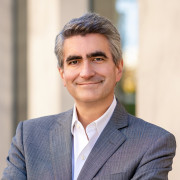
Jean-Charles Soria

Jean-Charles Soria
Jean-Charles Soria, M.D., Ph.D., is senior vice president, R&D Oncology, responsible for leading Amgen’s Oncology Therapeutic Area, JAPAC Development and Precision Medicine.
Prior to Amgen, Jean-Charles was the Director General of Gustave Roussy, he largest European Cancer Center. He oversaw at Gustave Roussy all clinical, research and teaching activities.
Jean-Charles is a Medical Oncologist and was appointed a Professor of Medicine at Paris-Saclay University in 2006. He holds a doctorate in molecular biology. He completed his post-doctoral training during a two-year appointment at the MD Anderson Cancer Center in Houston, Texas, where in addition he was an associate professor from 2013 to 2017.
From 2017 to 2019 he was Senior Vice-President, Research & Development in Oncology, with AstraZeneca in Gaithersburg, Maryland, United States, where he led clinical and research teams responsible for strategy and for development of new agents in immuno-oncology, cell therapy and conjugated antibodies.
Additionally, he has authored or co-authored more than 670 articles in leading international journals and has appeared in the list of the most influential research scientists in the world. Jean-Charles received multiple awards, including the ESMO award in 2018.
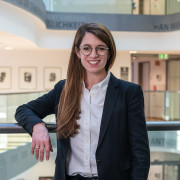
Ariel Stern

Ariel Stern
Dr. Ariel Dora Stern is the Alexander von Humboldt Professor for Digital Health, Economics and Policy at the Hasso Plattner Institute and a Full Professor at the University of Potsdam. Previously she spent ten years on the faculty of Harvard Business School and continues to teach in executive education programs for Harvard Medical School. Her research focuses on technology management and innovation in health care, using methods from econometrics and data science to curate and analyze novel datasets.
Her projects consider the regulation, strategy, and economics of health care, with a focus on emerging health care technologies and delivery modalities. She has published widely in top journals in medicine, economics, and health care policy and her research has been cited by Bloomberg, The New York Times, National Public Radio, STAT News, the Handlesblatt, the Frankfurter Allgemeine Zeitung, and the Tagesspiegel. Ariel received her Ph.D. from Harvard University, where she was a National Bureau of Economic Research Predoctoral Fellow in the Economics of Health and Aging.
She holds an undergraduate degree in economics from Dartmouth College, where she was a Presidential Scholar and national collegiate figure skating champion. From 2020-2021 Ariel served as the Director for International Health Care Economics at the Health Innovation Hub, an independent think tank of the German Federal Ministry of Health focused. She is a member of the Advisory Board of the Peterson Health Technology Institute, the German Society for Digital Medicine, and the Max Planck Institute for Innovation and Competition, and advises numerous health care startups.
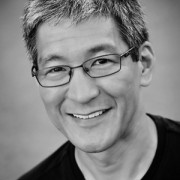
Roger Sunahara

Roger Sunahara
Professor Sunahara received his graduate training with Dr. Philip Seeman in the Department of Pharmacology at the University of Toronto. He later joined the laboratory of eminent biochemical pharmacologist, Dr. Alfred G. Gilman, at the University of Texas Southwestern Medical School as a post-doctoral fellow. His training has provided a strong foundation and appreciation for the applications of pharmacology, biochemistry and structural biology to delineate mechanisms of action.Professor Sunahara started his independent research career in the Department of Pharmacology at the University of Michigan Medical School, where he climbed the academic ladder.In 2015 Professor Sunahara moved his laboratory to the Department of Pharmacology at the University of California in San Diego. His main area of research focuses on the structural and pharmacological bases for hormone-mediated activation of G proteins by G protein-coupled receptors (GPCRs).He has served on several National and International review panels, as well as a peer reviewer and editor for many high-profile scientific journals. He has presented his work at universities, research institutions and scientific conferences all over the world, many as the keynote speaker.He is a Fellow of the American Society of Experimental Therapeutics.
The Sunahara lab utilizes biochemical, biophysical and pharmacological methodologies to study GPCR-G protein interactions. These approaches were invaluable to resolve the crystal structure of the b2-adrenergic receptor (b2AR)-G protein complex, team effort with long time collaborator Brian Kobilka. The structure was first snapshot of the agonist- and G protein-bound GPCR, providing valuable models for agonist-mediated activation of G proteins. We continue to utilize these data to better understand the basis for receptor-G protein specificity and agonist efficacy. Our mission is to understand the mechanism and structural bases for ligand binding and efficacy to help optimize the design and engineering of more efficacious therapeutics. This is an important perspective in the pursuit of receptor subtype-specific ligands, a major aspect to achieve safer, on-target therapeutics. One example of our recent work surrounds a structure-based effort to develop ligands that specifically target the b2AR above all other adrenergic receptor isoforms. Our goal is to develop safer b2AR-selective ligands for the treatment of asthma and acute rescue therapy for anaphylaxis. We also study non-canonical sites, those outside of the native hormone, or orthosteric, binding sites. We have identified several GPCR ligands that allosterically modulate orthosteric ligand binding and target sites that are often located in regions that display higher sequence variability among receptor subtypes. Again, our intention is to target specific receptor subtypes.
The structural work on the GPCR-G protein complexes have also revealed some unprecedented conformational changes in G protein structure. Some of these changes are associated with G protein activation while the functional consequences of other structural changes remain elusive.More recently we have have been heavily engaged in studies to address the functional role of these dramatic conformational changes and the relationship to disease. Some of these studies resolved a major question regarding the signaling differences in G protein splice forms, specifically the short and long forms of the stimulatory G protein, Gas(s) and Gas(l), respectively. We demonstrated that Gas(l), but not Gas(s), regulates extracellularly regulated kinases (ERK), and that this long isoform is tied to a devastating blood disorder, myelodysplastic syndrome (MDS).We speculate that these aberrations in Gas(l), specifically, may be involved in other pathologies such as cancer.
11th Virtual Human Twin Experience Symposium
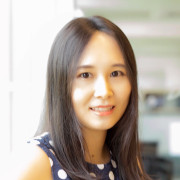
Jing Bi

Jing Bi
Jing Bi works in the Multiphysics/Structures Science & Technology team, focusing on advancing machine learning technologies for physics-based simulations. She earned her Ph.D. and M.S. degrees in Mechanical Engineering from the University of North Carolina at Charlotte in 2012 and 2010, respectively.
Since joining Dassault Systèmes in 2012, Jing has contributed to R&D projects spanning machine learning, additive manufacturing, multiscale material modeling, composite damage, and crashworthiness. She currently leads the Machine Learning Physics team within SIMULIA R&D, focusing on research, prototyping, and deployment of AI/ML technologies and software for 3D neural surrogates. Her recent work includes DOE data-based 3D neural surrogates (2023-2025), historical data-based 3D neural surrogates (2024-2025), AI/ML-accelerated material calibration (2024), and AI/ML-enabled operational digital twins (2024-2025).
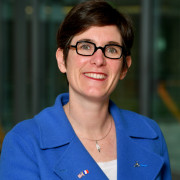
Claire Biot

Claire Biot
Claire Biot was appointed Vice President, Life Sciences & Healthcare Industry in 2019.
Her multifaceted experience in healthcare-related research, business and government administration supports Dassault Systèmes’ aim to drive digital transformation in Life Sciences & Healthcare Industry. As Life Sciences companies shift their focus to precision medicine, she is responsible for helping companies adopt a new unified approach to sustainable innovation by using a scientific and business platform to improve the patient or physician experience.Claire also drives Dassault Systèmes long-term growth in healthcare, leveraging virtual twin experiences to achieve medical practice excellence and value-based care.
Claire BIOT holds an MSc in Engineering from Ecole polytechnique (Paris, France) and an MSc in Biological Sciences from the Watson School of Biological Sciences (Cold Spring Harbor Laboratory, NY, USA). She studied cancer immunotherapy at Institut Pasteur (Paris, France), where she graduated with a PhD in immunology in 2012, and she holds a Honorary Doctorate from Long Island University, NY, USA (2023).
Claire began her career at the French Ministry of Health as Head of Division, Health Products Pricing and Reimbursement (2012-2015). She then joined Greater Paris University Hospitals (AP-HP, Paris, France, 2015-2019), where she was appointed Managing Director of the Health Products and Technologies Central Agency, allowing her to build strong experience in health products development, manufacturing and procurement as well as patient care. Claire joined Dassault Systèmes in March 2019.
Claire BIOT is an independent Board Member at Mauna Kea Technologies. She is Knight (Chevalier) in the National Order of Merit and has been named Young Leader 2022 by the French-American Foundation. She has been named Qualified Person by the French Prime Minister in a Mission on health products spending (Jan-Aug 2023).
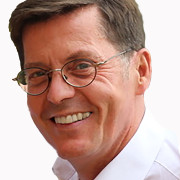
Damien Bonnet

Damien Bonnet
Damien Bonnet is Professor of Pediatrics and Cardiology. He is the head of the Pediatric and Congenital Cardiology department at University of Paris Cité. He is the director of three National reference centers for Rare Diseases: the M3C for complex congenital heart diseases, the Pediatric Pulmotension center for pediatric pulmonary hypertensions, and the Pediatric Cardiogen center for inherited cardiomyopathies and arrhythmias. His main research topics are perinatal management of complex congenital heart diseases, pediatric pulmonary hypertensions, therapies for heart failure in children, development and genetics of congenital heart diseases. His group has established many collaborations in a large variety of domains including genetics, epidemiology, neurodevelopment, therapeutic trials for rare diseases, heart failure, and percutaneous cardiac interventions in children.
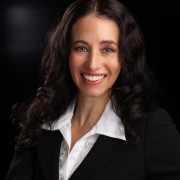
Melissa Ceruolo

Melissa Ceruolo
Melissa Ceruolo leads AI-driven data experiences and development of patient-centric healthcare solutions. With over 20 years of expertise in medical devices and the systemic application of health data, Melissa is a distinguished leader in advancing AI, digital biomarkers, and connected health. She has a robust background in device and data analytics and brings a visionary approach to healthcare - driving transformative change that supports personalized care and elevates clinical decision-making. Through strategic partnerships and pioneering programs, she is reshaping the healthcare landscape and setting new standards for patient-centric, data-driven health solutions.
Melissa holds a MS in Engineering Management from MIT and BS in Engineering from Carnegie Mellon University.
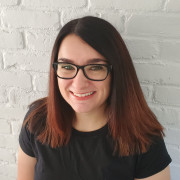
Andrea Falkoff

Andrea Falkoff
Andrea Falkoff is Vice President of Product Management, responsible for the Medidata Adjudicate and Imaging products and strategy. In her role, she works directly with customers and internal cross-functional teams to ensure the development of imaging and adjudication aligns with industry practices and customer needs.
Prior to joining Medidata, Andrea worked in the clinical trial services space, leading service delivery teams and ensuring quality delivery of Imaging and Adjudication trials for pharmaceutical, biotech, and medical device companies. She has over 18 years of experience working in the clinical trial space with a proven track record for customer satisfaction and quality delivery.
Andrea is well respected and has a great depth of industry experience in clinical trials. Over the years, she has developed strong relationships with pharmaceutical, device, and biotech sponsors, as well as CROs and other imaging-focused partners. She has a true passion for her work and being part of creating technology that will transform clinical trials in the future.

Sébastien Fricker

Sébastien Fricker
Sébastien Fricker holds an Engineering degree from Polytechnique school and a Master of Science in Optics from the University of Michigan. With over 25 years of expertise in lens design and optical simulation, he joined Essilor 14 years ago to drive advancements in progressive lens design.
Currently, Sébastien leads a multidisciplinary team focused on modeling human visual perception across diverse tasks and environments. By combining AI-driven simulations with digital twin technology, his team pioneers the creation of personalized lens solutions tailored to individual needs.
Sébastien also serves on the EssilorLuxottica AI Strategic Committee, where he helps guide the integration of artificial intelligence across R&D and product innovation initiatives.
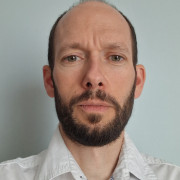
Philippe Guilhou

Philippe Guilhou
Philippe Guilhou received a Mechanical and Material engineering degree from the Ecole Supérieure d’Ingénieur de Marseillle (ESIM) in 2003 with a specialization in biomechanics and biomaterial.
After spending 3 years in the aerospace industry working on turbojets, Philippe joined DS SIMULIA in 2007 and worked in a variety of roles: technical support, pre-sales, services and training. Starting in 2010, Philippe was also the technical focal point for the Life Sciences activities in France working on the Living Heart Human Model (LHHM), the Abaqus Knee Simulator (AKS) and other customer projects.
Currently, Philippe works in the Life Sciences and Healthcare Industry team within Dassault Systèmes as a Technical Senior Manager who demonstrates the great potential of computational modeling & simulation in Life Sciences particularly with LHHM applications and In Silico Clinical Trial.
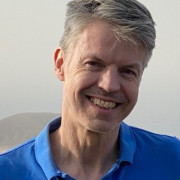
Michael Hill

Michael Hill
Michael R.S. Hill, PhD, MBA, is a global-minded, skilled entrepreneur and authentic leader, inspiring and enabling the creation of patient-centered, medical device innovations from discovery to scale. With almost thirty years of experience at Medtronic in research and technology, product development, clinical research and regulatory, global and leadership roles, he continues his passion to share knowledge, improve decision-making and accelerate the cycle of innovation. He is a Medtronic Bakken Fellow and recipient of the Medtronic Patent of Distinction, a Fellow of the American Institute of Medical and Biological Engineering, awarded the Distinguished Engineering Alumni award from Duke University, and recipient of the Biomedical Engineering Society & Wallace H Coulter Lifetime Achievement award in Healthcare Innovation. Described by his curiosity, passion and perseverance, he is an authentic leader, mentor/coach, advisor, innovator, pedagogue, and investor.

David Hoganson

David Hoganson
Dr. Hoganson is an Assistant in Cardiac Surgery, Department of Cardiac Surgery at Boston Children’s Hospital, and is an Assistant Professor of Surgery at Harvard Medical School.His clinical focus is on neonates and children with congenital heart disease. He has co-lead development of patient specific 3D modeling and computational flow modeling of complex cardiac disease for improved pre-operative planning and intraoperative guidance.His lab also focuses on development of medical devices to improve the safety and effectiveness of cardiac surgery.Dr. Hoganson has a background in engineering and industry experience developing cardiovascular medical devices prior to medical school. He graduated from the Temple University School of Medicine in 2004 and completed his general surgery residency and CT fellowship at the Washington University in St. Louis, and completed a congenital cardiac surgery fellowship at the Boston Children’s Hospital in 2016.
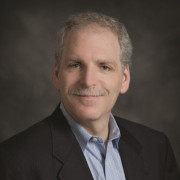
Steve Levine

Steve Levine
Dr. Levine is a prominent voice in the field of biomedical engineering and the leader of virtual human modeling at Dassault Systèmes, a multinational software company renowned for its expertise in 3D design, engineering, and simulation software. As the founder and Executive Director of the Living Heart Project, Dr. Levine spearheads a groundbreaking global initiative to develop virtual twins of the human body. This innovative project, now in its tenth year, has significantly advanced medical research, drug and device development, and biomedical education.
Currently, Dr. Levine serves as the principal investigator on a five-year collaboration with the US FDA, aimed at defining the use of virtual human twins to accelerate clinical trials and regulatory approval processes. His pioneering work has earned international acclaim and numerous prestigious awards, underscoring his profound impact on the fields of medicine and biomedical engineering.
Dr. Levine's contributions have been recognized by his election to the AIMBE College of Fellows. He holds a PhD in Materials Science and Engineering from Rutgers University. His visionary leadership continues to drive significant advancements in biomedical research and healthcare innovation.
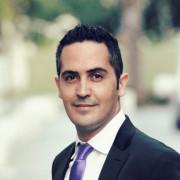
Alon Malka-Markovitz

Alon Malka-Markovitz
Dr. Alon Malka-Markovitz leads the Living Liver Initiative at Long Island University’s Dassault Systèmes Center of Excellence in Digital Engineering. His work integrates computational modelling, artificial intelligence, and multiscale simulation to create digital twins of the human liver that advance drug development, safety testing, and personalized medicine.
Before joining LIU, Dr. Malka-Markovitz spent nearly two decades developing complex simulation systems, specializing in material behavior, failure mechanics, and high-fidelity predictive modelling. Bridging high precision with biological complexity, his research drives the next generation of AI-enabled virtual human models that unite engineering accuracy and clinical relevance—pushing the boundaries of digital medicine.
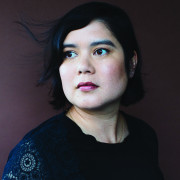
Kristin Myers

Kristin Myers
Kristin is a professor of mechanical engineering in the School of Engineering and Applied Science at Columbia University in the City of New York. She runs a soft tissue biomechanics laboratory on the campus of Columbia University Irving Medical Center. Kristin’s work focuses on the biomechanics of pregnancy and the female reproductive system. Hers is one of only a few engineering teams in the world creating computational digital twins of pregnancy to uncover structural mechanisms of preterm birth and to design functional biomedical devices in pregnancy. To understand preterm birth biological pathways, her work has also revealed how the cervix remodels itself from a mechanical barrier to protect the fetus to a compliant passageway to allow for safe delivery. She received her mechanical engineering doctorate and master’s degree from MIT and her bachelor’s degree from the University of Michigan. In 2017, she won the American Society of Mechanical Engineers' Y.C. Fung Young Investigators Award; in 2019, she won the Presidential Early Career Award in Science and Engineering (PECASE) from the White House for pregnancy biomechanics work; and in 2025, she was inducted into the American Institute of Medical and Biological Engineering College of Fellows.
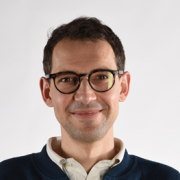
Nicolas Pecuchet

Nicolas Pecuchet
Nicolas Pécuchet, MD, PhD, serves as Director of Corporate Research in Life Sciences and Healthcare at Dassault Systèmes, where he leads the development of virtual human twins through initiatives such as MEDITWIN, translating “living” digital models into clinical solutions for cancer, cardiovascular, and neurological disorders. Graduate of Université Paris Cité (formerly Paris Descartes University), and formerly a clinical oncologist at AP-HP, he has published extensively on cancer genomics and liquid biopsy, with over 80 scientific works and thousands of citations.
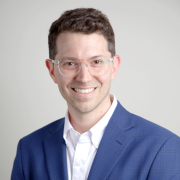
Kevin Sack

Kevin Sack
Kevin Sack is a Senior Principal Engineer and Technical Fellow in Medtronic’s Cardiac Rhythm Management (CRM) operating unit, located in Mounds View Minnesota. In this role he leads a team of scientists and engineers that advances cardiac physiology modeling efforts within CRM, simulating the electrical, mechanical, and hemodynamic effects between medical devices and the heart. This work spans a wide range of devices, emerging therapies, and patient populations. Kevin is also an Honorary research Associate at the University of South Africa and served on the Scientific council for the ENRICHMENT in silico clinic trial, a joint effort by the FDA and Dassault Systems to evaluate the use computational modeling and simulation to create Virtual Patients in order to reduce clinical trial size.
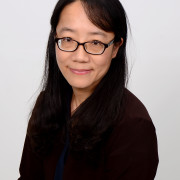
Jiang Yao

Jiang Yao
Jiang Yao received bachelor's degree in Mechanical Engineering from Tsinghua University in 1999. She graduated from University of Rochester with a PhD in Computational Biomechanics in 2006, where she developed a finite element model for the knee joint to study the effect of knee injuries. She performed postdoctoral researches in computational simulation of cardiac morphogenesis in chick embryo and material modeling of plaque tissues using intravascular elastography. She lectured linear and nonlinear finite elements for undergraduate and graduate students in University of Rochester in 2010.
She joined Dassault Systemes in 2011 as a technical specialist supporting Virtual Human Modeling activities and deliverables on human modeling and simulations. She developed musculoskeletal models for the upper and lower extremities, material databases and finite element models for various human organs and tissues (hand, foot, skin, bone etc.). She is the main developer for the Living Heart Human Model (LHHM) since 2017.

Joyce Zhao

Joyce Zhao
Joyce is the Director of Combination Product Device Development at Takeda Pharmaceuticals. She has two decades of experience spanning device development, manufacturing, and post-market lifecycle management. Her expertise includes a wide range of platforms such as autoinjectors, pen injectors, dual-chamber cartridges and injectors, prefilled syringes, and large-volume wearable/on-body delivery systems.
In addition to her leadership in device development, Joyce is an expert in in-silico modeling and simulation, with a focus on combination product performance prediction and optimization. Her work has advanced the integration of computational methods into the end to end combination product device development pathways. Before joining Takeda, Joyce spent nine years with Becton Dickinson (BD) and two years with Dr. Reddy’s Laboratories, where she held multiple roles in drug delivery device development. These positions allowed her to gain hands-on experience across the full product lifecycle, from early-stage design, commercial readiness through post-launch lifecycle management.
Joyce holds a PhD and MS in Mechanical Engineering, as well as a BS in Materials Science and Engineering
Thematics
Industry for Life
Industry for Life
Industry is reinventing itself in a true Renaissance in the Age of the Generative Economy. Responsible innovations factor in a systematic understanding and projection of their impacts, reuse and recycling of materials, autonomy and agility of processes and value chains, and harmony in the product experience, life and environmental footprint. With a new generation of software-defined products and AI agile objects, the industry contributes to the viability and sustainability of daily life.
Health for Life
Health for Life
Health is the most integral part of life, and improving health outcomes is a global priority. The life sciences and healthcare industry faces profound practice transformations, making them plural and open. From new therapeutics and production innovations and scientific advances from life itself, to AI-driven patient empowerment and education, more and more people must benefit from knowledge and know-how sharing and contribute to a new health system of systems.
Planet with Life
Planet with Life
The Preservation of our Planet is one of the most fundamental challenges of our time. Our restrictive definition of the system (or of our ecosystems) must now include the living, with a view to understanding and considering the environment as a whole. Logic becomes associative and no longer siloed by discipline. Life is part of the equation.
New Eyes On Research
New Eyes On Research
Science is always in movement. Looking for discoveries, emerging domains, and openness requires new knowledge and know-how, fueling a new way to experience research. What are the new, fertile epistemological avenues and reference forms for reading , inventing and navigate tomorrow's world ?
Impact in Society
Impact in Society
Thanks to a vast community, science is improving our daily lives. All sciences are now required to make the vibration of all life forms visible. The contribution of the humanities and social sciences provides a holistic, pluralistic and inclusive vision, enabling us to better understand the complex dynamics of societies and their interactions with their milieus.
